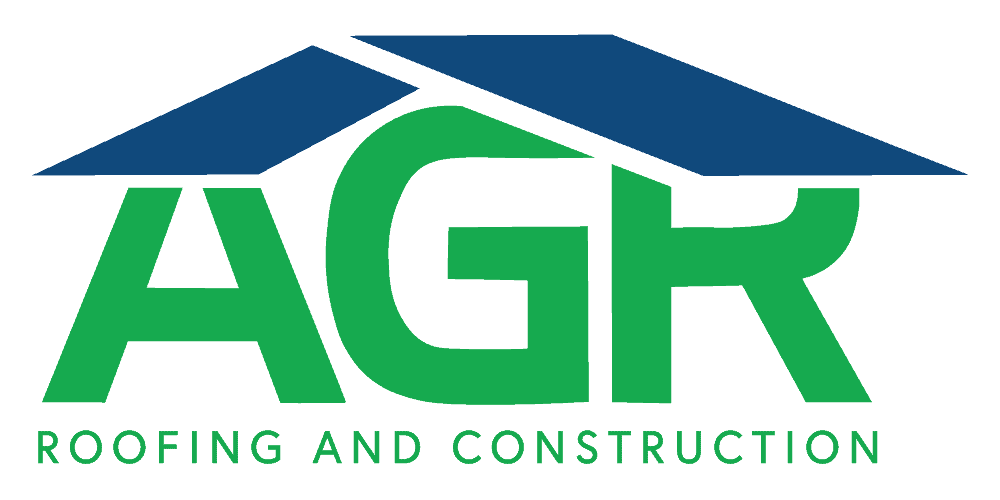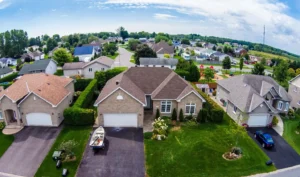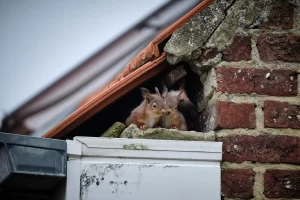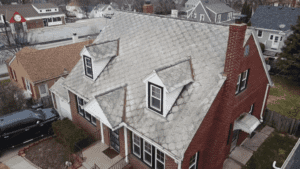Do not disregard noisy gutters.
Do your downspouts produce loud sounds of trickling or rushing when it rains? Or perhaps you occasionally hear them clanging, banging, and rattling.
Downspouts direct water away from your home and to a safe drainage area. This prevents water from penetrating the basement or crawl space, foundation, footing, and grounds of the house.
It protects the home’s structure, keeps everything dry, and prevents the surrounding ground from flooding or becoming waterlogged.
Downspouts that are loud can be quite annoying. Occasionally, it may indicate that something has gone wrong. Regardless, here are a few solutions to the problem.
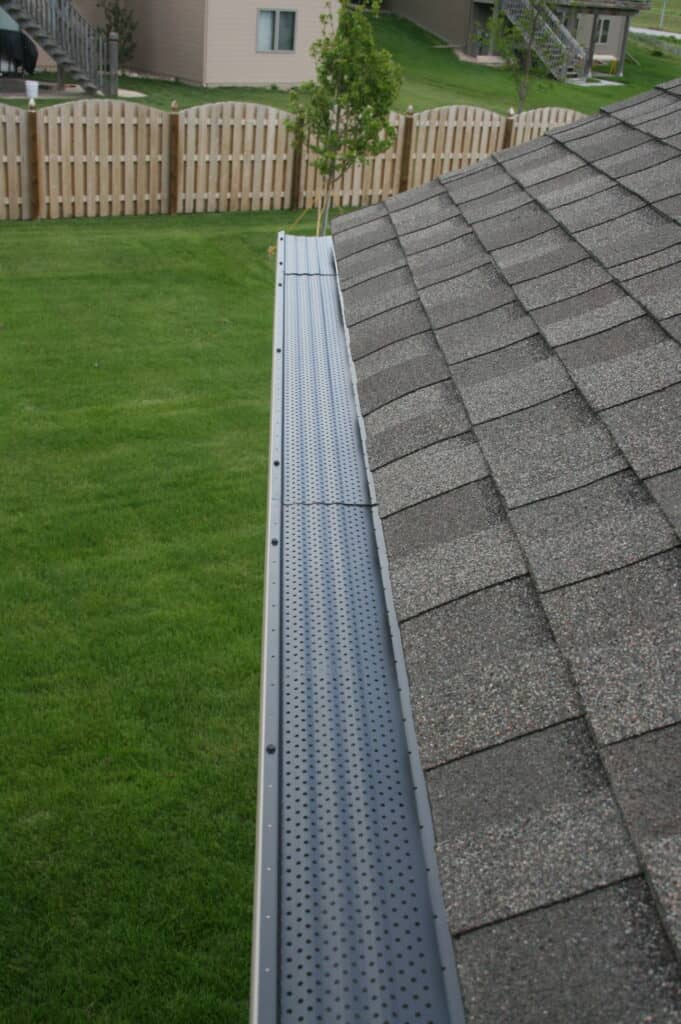
What could be causing the noise?
So, why are your gutters so loud? There are numerous possible explanations. Some are considered normal, while others indicate damaged or broken piping.
- Loosen parts / fasteners
Loose screws and parts can result in rattling and banging downspouts. This is a common problem with older downspouts, particularly those that have not been maintained for a while.
- Angle of downspout elbow joint is too harsh
Occasionally, water will fall directly down the center of a downspout and onto the ground. The sound of it striking the angled base can be extremely loud.
- Cracks/Damage
Water can flow through downspouts at a greater rate if it is leaking through tears or holes in the piping.
- Heavy rain down pours
High volumes of water entering, falling, and exiting the downspouts can produce a loud rushing sound.
Water on Metal Water produces sound when it hits metal. In addition, certain metal piping, such as aluminum and copper, can be exceptionally loud due to the surface vibrations they generate.
Fortunately, there are several ways to mitigate this.
Signs of Downspout-Related or Gutter related issues
Do your noisy gutters represent a superficial or functional problem? The best method is to search for signs of damage.
- Standing water around your foundation
Pooling water around the house is the first indication that your downspouts are not functioning properly. This indicates that the downspouts or gutter systems are not effectively directing water away from the roof and into the drainage system of the property.
Do you observe puddles or pools of water near or around the house after it has rained? This could be the result of landscaping, paving, or grading problems, but it could also be an indication of broken downspouts or gutters.
Even small holes or tears in the downspouts can contribute to this issue.
- Rain Saturated Ground
Due to faulty downspouts, water will soak into the ground. Therefore, walk around the house to determine if any areas are wet.
After a rainstorm or in the spring, when ice and snow are still melting, is the optimal time for this.
- Flooded Yard
When it rains, does your yard or pavement become flooded? This is a clear indication that your downspouts or gutter system is not functioning properly.
A drainage problem exists on a property that floods after an average rainfall. Sometimes the problem is caused by outdoor drains that are clogged or insufficient. Occasionally, it’s because water isn’t even reaching the drains.
If your yard tends to flood after it rains, inspect your downspouts and gutter system for tears, cracks, breaks, and holes.
- Crawl Space, Basement, and Foundation Water Damage
Whether it is on the surface or has seeped into the ground, rainwater is detrimental to a structure’s foundation.
As soil absorbs water, it swells, then contracts as the water evaporates and the soil dries out. This natural process is destructive to a foundation. These expansion-contraction cycles exert pressure on the foundation, which can result in micro fractures and minute hairline cracks.
Surface water pooling or subsurface water accumulation can exert hydrostatic pressure on the foundation. The saturated and swollen soil exerts pressure on the house and can even lift the foundation.
When the water evaporates, the soil may erode, causing the house to settle. This process of settlement can cause the foundation and the entire structure to twist, flex, and bend out of place.
Have you observed cracks in the exterior foundation, the basement, the drywall, or the areas around the window and door frames? When you attempt to open or close windows or doors, do they stick or jam?
These are indicators of early water damage, which could be caused by the downspouts.
If the situation is dire, water will begin to leak into your basement or crawl space.
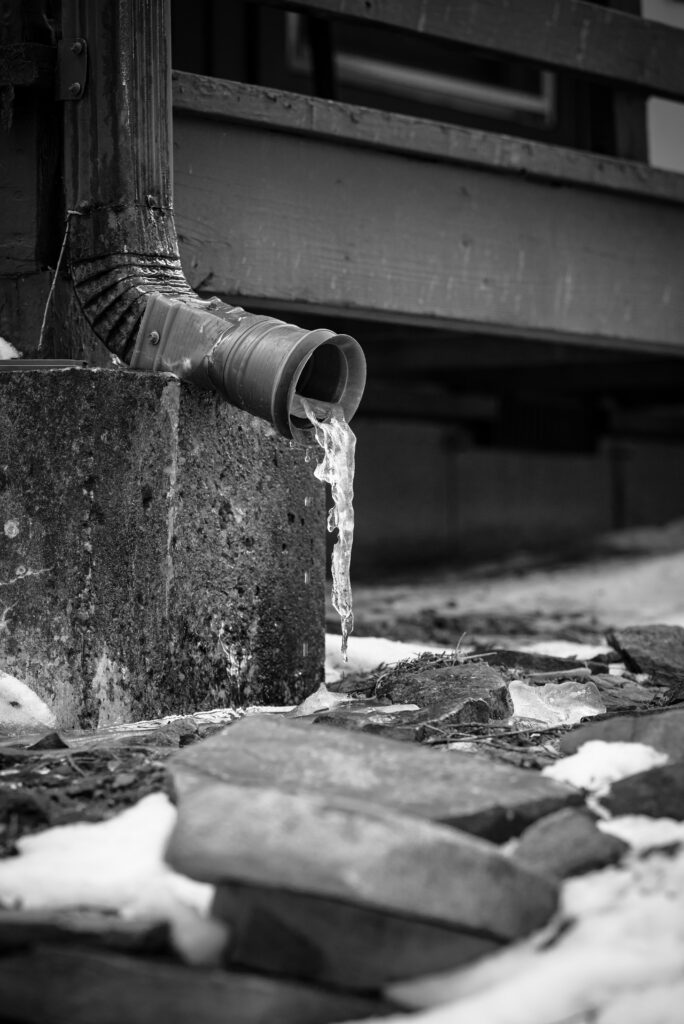
Noisy Gutter Fixes:
- Re-secure Loose Fasteners
It’s possible that loose screws are causing a downspout to bang against the house. In this situation, you only need to tighten things up.
- Gutter Replacement or Gutter Repair
Fragmented or torn downspout components can cause noise. These must be repaired or replaced immediately.
- Replace the Angled Elbows
Change the elbows on your downspouts from metal to plastic or vinyl if you don’t like the sound of water hitting metal.
The elbow is the curved section at the bottom of the downspout that directs water away from the house. Since a great deal of water falls directly on metal gutter elbows, they may be the sole cause of noisy downspouts.
You can reduce the volume by substituting louder aluminum or steel elbows with vinyl or PVC elbows.
You can adjust the lower angle of the downspout to prevent water from falling directly onto the elbow. This is accomplished by using longer gutter attachment pieces to extend the lower section away from the house.
- Add Additional Materials
Insulate your downspouts or add a path (like some utility rope) to the inside for the water to trickle down. You can also insert a folded piece of garden netting or porous water resistant cloth inside the elbow.

